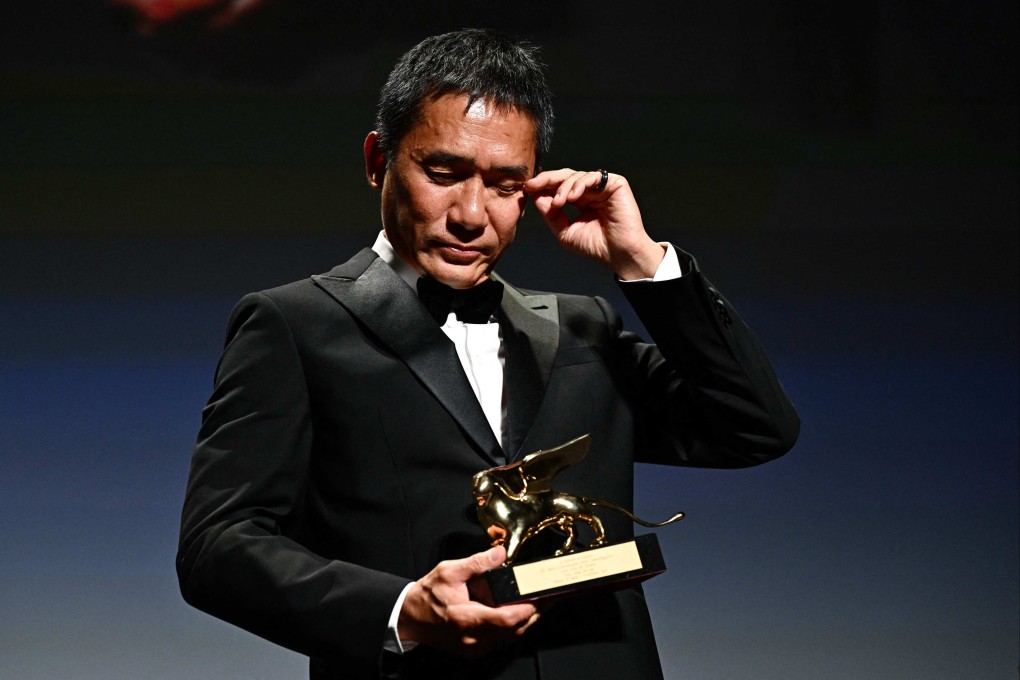Editorial | Honours a reminder of Hong Kong’s golden era
- The separate recognition of two of the city’s biggest screen stars – Chow Yun-fat and Tony Leung – at major international film festivals should inspire a new generation of creative talent

Few things bring back nostalgia for Hong Kong people more than Cantopop or films. The latest back-to-back honouring of two of the city’s biggest movie stars by two major international film festivals is a reminder of our golden era. It should also spur a new generation to strive even harder creatively. Chow Yun-fat was named Asian filmmaker of the year at the Busan International Film Festival in Korea. The award is presented to a professional or organisation for the most outstanding contribution to the development of the region’s film industry and culture. Meanwhile, Tony Leung Chiu-wai became the first Chinese actor to be honoured with a prestigious Golden Lion for lifetime achievement at the Venice Film Festival.
A tearful Leung paid tribute to the city and its people while accepting the award. It is indeed extraordinary that such a tiny place has had a big impact on international cinema. Not only are Leung and Chow globally known, but directors such as John Woo, Wong Kar-wai and Ann Hui are widely admired and highly influential in the West. Long before the huge John Wick franchise played by Hollywood superstar Keanu Reeves, Woo and Chow invented and popularised the whole genre of “gun fu”, the combination of shoot ’em up and kung fu, in the 1980s. The gangster movies they made together have become synonymous with “Hong Kong film noir”, with its over-the-top violence. Quentin Tarantino and Reeves are among countless Hollywood big names who have been inspired by it.
Meanwhile, in making movies such as In the Mood for Love and Happy Together – the latter being a pioneering classic that explores gay love – Leung and Wong produced not only art-house favourites, but also films with great commercial appeal in the West. But it is undeniable that Leung and Chow belong to the previous generation. Hong Kong has real talent, but the work of the younger generation still awaits international recognition and success.
Cross-border integration has increasingly become a daily reality in Hong Kong, including culture. Local artists will need to exploit opportunities with artistic pollination between the two sides, rather than being stifled. The city needs a new creative generation to make sure Cantonese cinema does not represent a bygone era but a new dawn.
